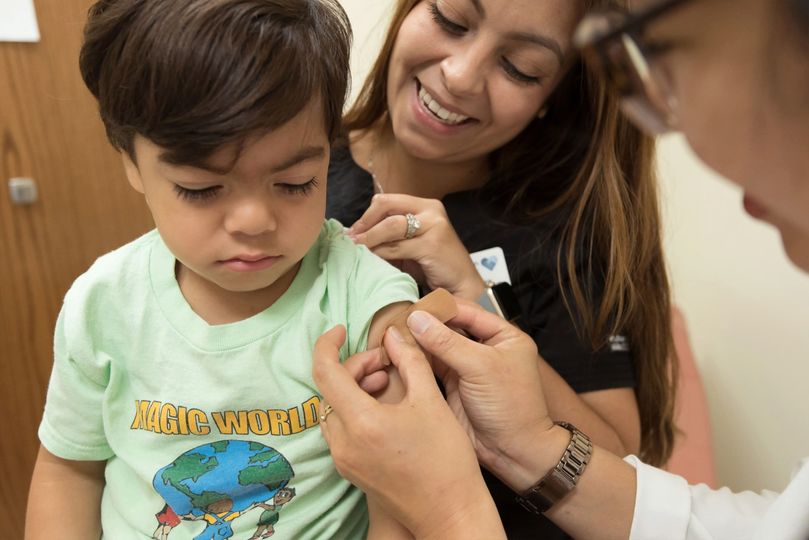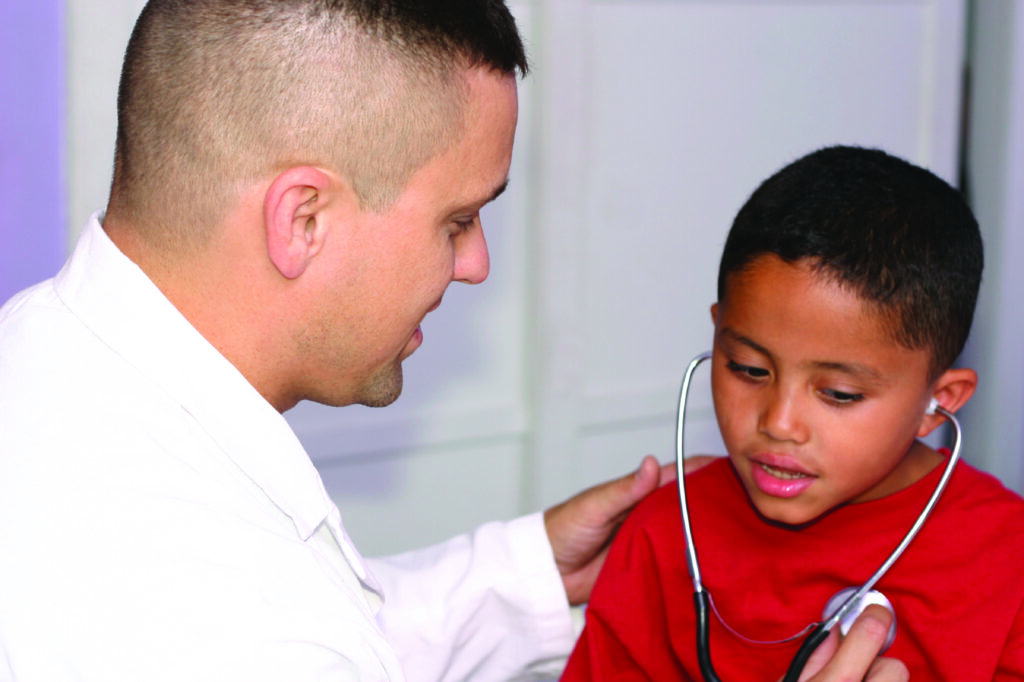The flu vaccine
6 mins read
This advice applies across the UK.
Flu vaccines help protect against the main types of flu viruses circulating now. Having the flu vaccine will also stop you spreading flu to others at more risk of serious problems from flu.
In this article
What is the flu?
Flu is caused by a virus that can be a very unpleasant illness for children and lead to serious problems like bronchitis or pneumonia.
People with a learning disability are more likely to develop pneumonia if they get flu.
The flu season starts in September and runs through the winter.
What is the flu vaccine?
Flu vaccines help protect against the main types of flu viruses circulating now. Having the flu vaccine will also stop you spreading flu to others at more risk of serious problems from flu.
The flu vaccine is available to certain groups every year on the NHS.
It can take 10 to 14 days for the flu vaccine to work. There is still a chance you might get flu after vaccination, but it is likely to be milder and not last as long.
The flu vaccine is very safe and effective, and most side effects are mild. From the injected vaccine, you may get a slight raised temperature, muscle aches or a sore arm where the needle went it. These should not last more than a day or two. From the nasal spray vaccine, you may get a runny or blocked nose, decreased appetite, tiredness and headache. Flu vaccines do not cause flu.
Very rarely, someone may have a serious allergic reaction to the flu vaccines. This usually happens within minutes, and healthcare staff administering the vaccine are trained to deal with this. Many millions of doses have been given in this and other countries. If you have concerns, talk to your GP or child’s consultant.
You can see the flu vaccine and children’s flu vaccine ingredients on the NHS website.
Eligibility
In 2025, the groups eligible for a free NHS flu vaccine include:
- All children aged two or three years on 31 August 2025.
- Primary school aged children (from Reception to Year 6).
- Secondary school aged children (from Year 7 to Year 11).
- All children in clinical risk groups aged from six months to less than 18 years.
- Carers in receipt of Carer’s Allowance, or those who are the main carer of an elderly or disabled person.
- Close contacts of immunocompromised individuals.
You can read all groups eligible for a flu vaccine on the NHS website.
Parent carers
Carers, including parent carers, are eligible for the free flu vaccine if you get Carer’s Allowance or are the main carer for an older or disabled person who may be at risk. You can get a free jab if you live with someone who’s at high risk from coronavirus .
If you struggle to register on the GP carers register, our advice is to politely persist with your GP. Remind them of the NHS eligibility guidance. You can also approach your local pharmacy, who can also provide free flu vaccinations to carers and adults with learning disabilities.
Autistic children and those with complex conditions and learning disabilities
The flu jab is highly recommended for children with rare conditions such as diabetes, cystic fibrosis, muscular dystrophies and primary immunodeficiencies. These children are much more vulnerable to flu complications. There will be very rare exceptions. If in any doubt, speak to your GP or get advice from your child’s consultant. If the nasal spray vaccine is not suitable, an injected vaccine will usually be given.
Younger or older autistic children are eligible for a free flu vaccination if they have a learning disability or other long-term health condition. If your child is 14 or over, call the practice and check they are on the practice’s learning disability register. If not, ask to add them. This will trigger invitations for your young person to have a flu vaccine and an Annual Health Check. Even if they are not on the register, they can still have a free flu vaccine at their GP practice.
For young people not eligible for the free NHS vaccine, you can pay to receive the vaccine at some local and high street pharmacies.
Consent
Getting the flu vaccine is voluntary. You need to give permission for your child to have the vaccine, so look out for the consent form in your child’s school bag. Young people under 16 years old who understand the pros and cons of the vaccine may be able to give consent themselves.
Young people aged 16 upward have the right to consent to having the flu vaccine themselves, unless there is ‘significant evidence’ they cannot. Anyone aged over 18 must give consent themselves, unless they cannot. In this situation a trained professional will involve their carer and assess the young person’s capacity to make a ‘best interests’ decision on their behalf.
We recommend using Easy Read information on the flu vaccine or this video to help young people with learning disabilities understand what to expect.
Getting the vaccine
Babies aged six months to two years with a long-term condition will have the injected vaccine at the GP surgery. The nasal spray is not licensed for under-twos.
Two and three-years olds are eligible for the nasal vaccine, which they’ll receive at the GP surgery.
School age children up to the age of 15 will have the vaccine nasal spray at school. School aged children with a long-term health condition can ask to receive their vaccine at the GP surgery instead. Home-schooled children should be invited for vaccination by the local healthcare team. If you do not hear from them, ask your child’s GP where they should go for vaccination.
The nasal spray is also available to children aged two to 17 with long-term health conditions. However, if the spray is unsuitable, for example if they have a weakened immune system, they can have the jab instead.
Young people aged 18 and over who have a learning disability or a long-term condition are also eligible for an injected vaccine. Find out more about who is eligible and more about the children’s flu vaccine.
You can ask your GP surgery to make reasonable adjustments and provide easy read information to help your child access the vaccine. See more here on reasonable adjustments and advice from us on making GP surgeries more welcoming for disabled children and their families.
Related information

The Covid-19 vaccine
The coronavirus (Covid-19) vaccine is as an injection into the upper arm that protects against the Covid-19 virus. It's usually provided to…
Read more
Respiratory syncytial virus (RSV)
We've put together the information on this page to help you protect your child from the virus, better understand the symptoms, and…
Read more
Strep A
Strep A (formally called Group A Streptococcus or GAS) is a common type of bacteria often found on the skin or in…
Read more